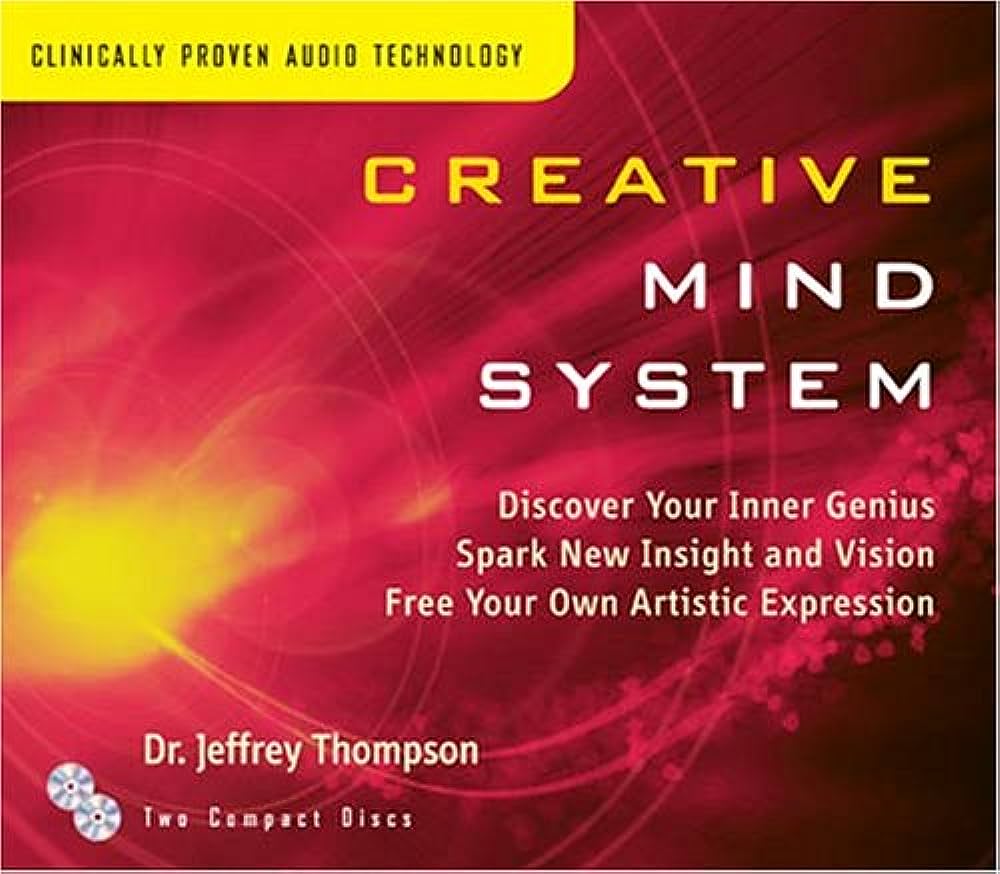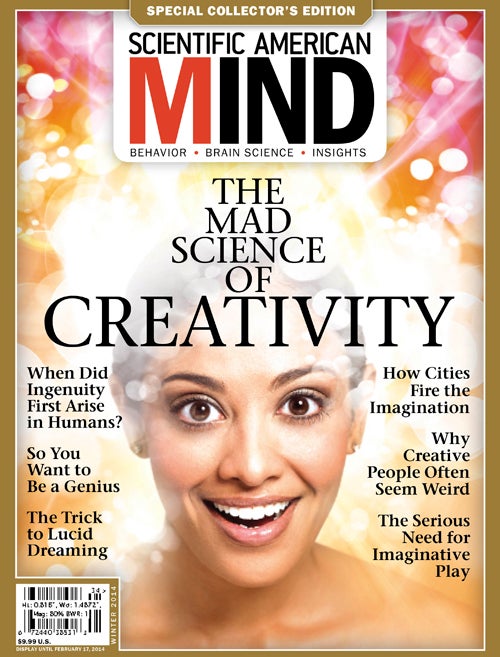Lucid dreaming is a fascinating state of consciousness where the dreamer becomes aware of their dream and can control and manipulate the dream narrative. It offers a unique opportunity to explore the depths of the subconscious mind, unlocking the door to creativity and problem-solving that lies within. In this article, we delve into the world of lucid dreaming, its connection to creativity and problem-solving, and how you can harness this powerful tool to unleash your inner genius.
Understanding Lucid Dreaming
What is Lucid Dreaming?
Lucid dreaming occurs when you become conscious that you are dreaming while still in the dream state. This awareness allows you to recognize that the dream is a product of your mind and grants you the ability to control your actions and surroundings within the dream.
How Lucid Dreaming Differs from Regular Dreams
Unlike regular dreams, where you are merely a passive observer, lucid dreaming empowers you to actively shape the dream world. It gives you the freedom to fly, change the scenery, and interact with dream characters in ways that were never before possible.
The Science Behind Lucid Dreaming
Lucid dreaming is a scientifically studied phenomenon that occurs during REM (Rapid Eye Movement) sleep, a stage of sleep associated with heightened brain activity and vivid dreams. Studies have shown that lucid dreaming is accompanied by increased activity in the prefrontal cortex, the part of the brain responsible for decision-making and self-awareness.
Benefits of Lucid Dreaming
- Enhanced creativity and problem-solving abilities
- Reduced anxiety and stress
- Opportunity for self-exploration and personal growth
- Improved confidence and assertiveness
Cultivating Lucid Dreaming
Developing Dream Recall
To start lucid dreaming, it’s essential to improve your dream recall. Keep a dream journal by your bedside and jot down your dreams as soon as you wake up. This practice helps you recognize recurring dream patterns and dream signs, which can later serve as cues for lucidity.
Reality Checks and Awareness Techniques
Performing reality checks throughout the day can help you build the habit of questioning reality. When you frequently question whether you are dreaming or awake, this habit will transfer into your dream state, leading to moments of lucidity.
Creating a Dream-Friendly Environment
Ensure that you have a conducive sleep environment for lucid dreaming. Practice good sleep hygiene, maintain a regular sleep schedule, and consider using aids like binaural beats or certain supplements that promote vivid dreaming.
Unleashing Creativity Through Lucid Dreaming
Accessing the Subconscious Mind
In the lucid dream state, you can access the deeper realms of your subconscious mind. This provides a unique opportunity to explore memories, emotions, and unresolved issues that may be influencing your creativity and problem-solving abilities in waking life.
Creative Problem-Solving in Lucid Dreams
Setting dream intentions before sleep can focus your mind on specific problems or creative projects you wish to explore. Within the lucid dream, you can experiment with various solutions and scenarios, unencumbered by the limitations of the waking world.
Encountering Dream Characters and Symbolism
Interacting with dream characters can provide valuable insights into your own psyche. These dream characters may represent different aspects of your personality or subconscious thoughts. Similarly, dream symbolism can offer hidden messages and ideas that can be applied to your creative endeavors.
Channeling Artistic Inspiration from Lucid Dreams
“In my lucid dreams, I have encountered surreal landscapes and vibrant colors that are beyond imagination. These dreams serve as an endless source of inspiration for my art, pushing the boundaries of my creativity.” – An Artist’s Testimonial.
Lucid dreams can provide artists with a wellspring of inspiration. Capturing the imagery and emotions experienced in lucid dreams can be translated into various art forms, including paintings, music, writing, and more.
Enhancing Skills and Learning
Lucid Dreaming for Skill Improvement
Practicing real-life skills in lucid dreams can lead to enhanced performance in waking life. Athletes, for example, can use lucid dreams to visualize and perfect their techniques, ultimately improving their muscle memory and overall performance.
Lucid Dreaming as a Learning Tool
Studying and problem-solving in lucid dreams can facilitate improved learning and memory retention. The dream state allows you to explore complex subjects with heightened focus and creativity, making it an effective learning tool.
Overcoming Creative Blocks
Identifying Common Creative Blocks
Many creatives face hurdles such as a lack of inspiration or fear of failure that impede their creative flow. Identifying these blocks is crucial to unlocking creative potential.
How Lucid Dreaming Can Help Break Creative Barriers
“Lucid dreaming empowered me to face my fears and insecurities head-on. I began approaching my creative projects fearlessly, knowing that I could always find innovative solutions in my dreams.” – A Writer’s Experience.
Lucid dreaming can provide a safe space for confronting fears and finding solutions to creative challenges. Embracing this fearlessness can lead to a more fulfilling and imaginative creative journey.
Integrating Lucid Dreaming with Daily Creativity Practices
Combining lucid dreaming with mindfulness practices like meditation can help maintain a heightened creative awareness in both dream and waking states. Keeping a creative dream journal allows you to record ideas and insights from your lucid dreams, further fueling your creative ventures in your waking life.
Potential Risks and Precautions
Sleep Disruptions and Sleep Disorders
While lucid dreaming can be beneficial, excessive focus on lucid dreaming can lead to sleep disturbances. It is essential to strike a balance and prioritize overall sleep quality.
Differentiating Between Dreams and Reality
Lucid dreaming blurs the line between dream and reality, making it essential to maintain a clear distinction between the two. Grounding techniques and reality checks can help you differentiate between dream and waking states.
Maintaining a Balanced Approach to Lucid Dreaming
“Lucid dreaming can be an incredible tool, but it’s vital to remember that it’s just one aspect of a holistic creative journey.” – Lucid Dreamer’s Advice.
Approach lucid dreaming as a complement to other creative practices rather than relying solely on it for inspiration and problem-solving.
Lucid Dreaming and Personal Growth
Self-Discovery and Emotional Healing

Lucid dreaming can offer profound insights into your subconscious mind, helping you navigate emotions, traumas, and unresolved issues. This process of self-discovery can lead to emotional healing and growth.
Overcoming Fears and Nightmares
With lucid dreaming, you can confront and transform recurring nightmares, turning them into empowering dream experiences. Facing fears in dreams can lead to increased confidence and resilience in real life.
Lucid Dreaming as a Tool for Self-Actualization
“Lucid dreaming is a portal to self-actualization, allowing me to explore the limitless possibilities of my own mind.” – A Dreamer’s Reflection.
By integrating lucid dreaming with personal growth practices, individuals can use this tool to align their dreams with their aspirations, leading to a more fulfilling and purpose-driven life.
FAQs about Lucid Dreaming
What is the best technique for beginners to start lucid dreaming?
For beginners, a combination of dream journaling, reality checks, and mindfulness practices is highly effective in inducing lucid dreams.
Can anyone learn to have lucid dreams, or is it a rare ability?
Lucid dreaming is a skill that most individuals can learn with practice. While some people experience spontaneous lucid dreams, with dedication, anyone can become proficient at lucid dreaming.
Is lucid dreaming safe? Are there any potential risks involved?
Lucid dreaming is generally safe for most individuals. However, excessive focus on lucid dreaming can lead to sleep disturbances and should be balanced with other aspects of life.
How can lucid dreaming be used for problem-solving and creativity?
Lucid dreaming allows you to explore creative solutions to real-life problems and gather inspiration from the limitless dream world.
Can lucid dreaming improve cognitive functions and memory?
Studies suggest that lucid dreaming may have positive effects on cognitive functions and memory retention, given the heightened brain activity during REM sleep.
How do lucid dreams differ from regular dreams?
In lucid dreams, the dreamer is consciously aware that they are dreaming and can actively influence the dream content, whereas in regular dreams, the dreamer is a passive observer.
Are there any cultural or spiritual significance to lucid dreaming?
Lucid dreaming has been revered in various cultures for its spiritual significance, often associated with enhanced spiritual experiences and insights.
Can lucid dreaming be used for lucid living and mindfulness in waking life?
Awareness cultivated through lucid dreaming can be applied to waking life, fostering mindfulness and lucid living to enhance self-awareness and conscious decision-making.
Are there any known historical figures who used lucid dreaming for creativity or problem-solving?
A few historical figures, such as Thomas Edison and Nikola Tesla, were known to use hypnagogic states (similar to lucid dreaming) to spark creativity and find solutions to complex problems.
Can lucid dreaming be a form of therapy for certain psychological conditions?
Lucid dreaming has shown potential as a complementary therapy for conditions like PTSD and nightmares, offering a safe space for emotional processing and healing.
Conclusion
In conclusion, lucid dreaming is a powerful tool for accessing the hidden potential of your mind, unlocking creativity, and finding innovative solutions to real-life challenges. By cultivating lucid dreaming techniques and integrating them with daily creativity practices, you can unleash your inner genius and embark on a transformative journey of self-discovery and personal growth. Remember to approacanchorh lucid dreaming with balance and mindfulness, allowing it to complement your overall creative endeavors and enhance your waking life experiences.

Greetings, dear dreamers and seekers of emotional and spiritual healing. I am Aria Blake, a passionate and dedicated professional psychologist…More

